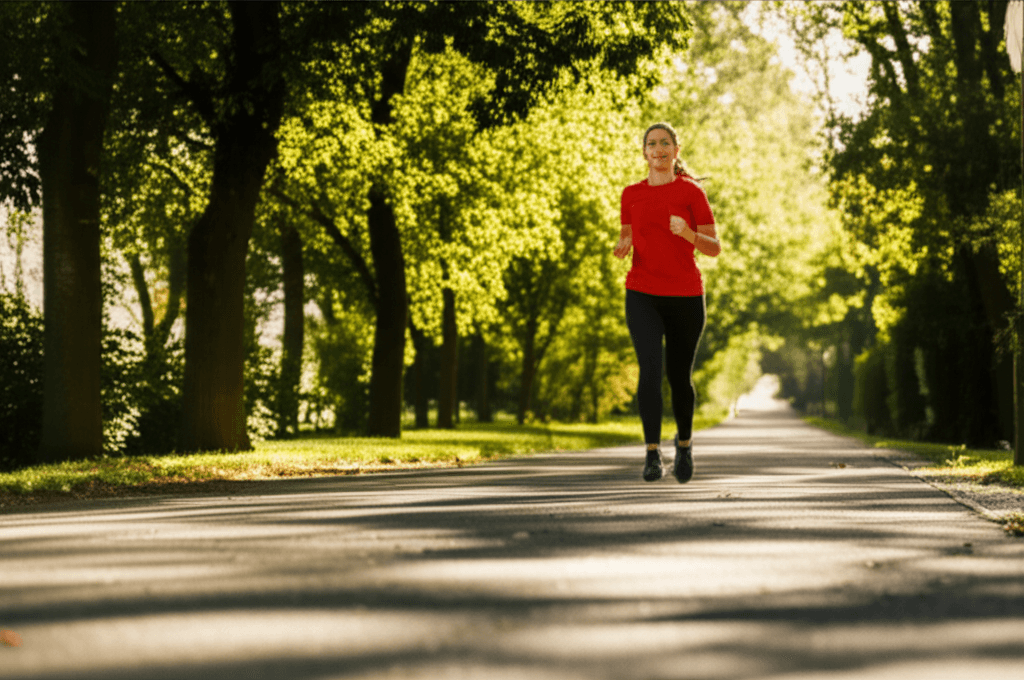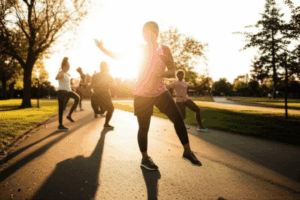In an age where mental health challenges are increasingly prevalent, finding accessible and effective coping mechanisms is more crucial than ever. While often lauded for its physical benefits, exercise stands out as a powerful, natural intervention for improving mental well-being across the lifespan. From alleviating symptoms of anxiety and depression to sharpening cognitive function and enhancing overall mood, engaging in regular physical activity offers a multifaceted approach to fostering a healthier mind.

The Neurochemical Boost: How Exercise Elevates Mood and Reduces Stress
One of the most immediate and well-documented ways exercise impacts mental health is through its influence on brain chemistry. Physical activity triggers a cascade of neurochemical changes that profoundly affect mood and stress levels.
Endorphins: Nature’s Feel-Good Chemicals
During exercise, the brain releases endorphins, which are natural painkillers and mood elevators. These “feel-good” neurotransmitters interact with opioid receptors in the brain, leading to increased feelings of happiness and a reduction in pain perception, often described as a “runner’s high.” Any aerobic activity, from a brisk walk to a game of tennis, can induce this positive sensation.
Serotonin, Dopamine, and Norepinephrine: Regulating Mood and Motivation
Beyond endorphins, exercise also influences other crucial neurotransmitters. It boosts levels of serotonin, a key regulator of mood, sleep, and appetite, which is often targeted by antidepressant medications. Dopamine, associated with the brain’s reward system, motivation, and pleasure, also increases with physical activity, fostering positive emotions and combating symptoms of depression. Additionally, norepinephrine, which impacts alertness and energy, sees an increase, helping to combat fatigue and improve overall mood. These neurochemical alterations not only alleviate stress and anxiety but also enhance the brain’s capacity for joy and motivation.
Cortisol Reduction: A Buffer Against Stress
Chronic stress is linked to elevated levels of cortisol, a stress hormone that can contribute to anxiety and depression. Regular exercise helps regulate cortisol levels, thereby reducing the body’s stress response and promoting feelings of calm and relaxation. This regulatory effect can also help prevent stress over time, offering a protective buffer against future stressors.

Combatting Mental Health Conditions: Exercise as a Therapeutic Tool
Research consistently shows that regular physical activity is not just a preventive measure but also a significant component in the treatment and management of various mental health conditions.
Alleviating Depression Symptoms
Exercise can be as effective as antidepressant medication for treating mild to moderate depression, and it serves as a valuable adjunct to other treatments for more severe cases. Studies indicate that running for 15 minutes a day or walking for an hour can reduce the risk of major depression by 26%. The benefits stem from improved neurochemistry, enhanced self-esteem, distraction from negative thoughts, and a sense of accomplishment. Exercise can break the cycle of inactivity and withdrawal often associated with depression, acting as a form of behavioral activation.
Reducing Anxiety and Tension
Physical activity is a natural and effective treatment for anxiety. It relieves tension, boosts physical and mental energy, and enhances well-being through neurochemical releases. Even short bursts of aerobic exercise, such as a 10-minute walk, can quickly stimulate anti-anxiety effects that can last for several hours. Regular activity lowers overall tension, stabilizes mood, and improves self-esteem, which are crucial for managing anxiety disorders.
Improving Other Mental Health Conditions
Beyond depression and anxiety, exercise has shown positive impacts on other conditions such as ADHD, bipolar disorder, OCD, and PTSD. For instance, physical activity can help individuals with ADHD manage thoughts and improve focus. Exercise can also aid in recovery from mental illness by boosting mood, concentration, and alertness, alongside improving cardiovascular and overall physical health.

Cognitive Enhancement: Sharper Thinking and Memory
The benefits of exercise extend to cognitive function, helping to maintain and even improve brain health across the lifespan.
Enhanced Memory and Thinking Skills
Physical activity increases blood flow and oxygen to the brain, which in turn enhances brain function. The same endorphins that improve mood also aid concentration and mental sharpness. Exercise stimulates the growth of new brain cells (neurogenesis) and promotes neuroplasticity, the brain’s ability to adapt and learn, particularly in areas like the hippocampus, which is critical for learning, memory, and emotional regulation.
Preventing Cognitive Decline
Strong evidence suggests that greater amounts of physical activity are associated with a reduced risk of developing cognitive impairment, including Alzheimer’s disease and other forms of dementia. Regular exercise helps prevent age-related cognitive decline and can improve executive functions like processing speed, working memory, and cognitive flexibility.

The Role of Exercise in Improving Sleep Quality
Sleep is intricately linked with mental health; poor sleep can exacerbate mental illness symptoms, while good sleep is vital for both physical and mental well-being. Exercise plays a significant role in fostering better sleep.
Faster Onset and Deeper Sleep
Moderate to vigorous exercise can improve sleep quality by reducing the time it takes to fall asleep (sleep onset) and decreasing the amount of time spent awake during the night. It can also alleviate daytime sleepiness and, for some, reduce the reliance on sleep medications. This is particularly beneficial for individuals with mental health conditions, who often experience poor sleep quality.
A Bidirectional Relationship
Sleep and exercise have a bidirectional relationship: optimizing exercise can improve sleep, and adequate sleep can promote healthier physical activity levels. By reducing perceived stress and ruminative thinking, physical activity can indirectly lead to improved sleep quality.

Practical Steps to Incorporate Exercise for Mental Health
Recognizing the profound impact of exercise, integrating it into daily life is a powerful step toward better mental well-being.
Recommended Guidelines
Most healthy adults should aim for at least 150 minutes of moderate-intensity aerobic activity or 75 minutes of vigorous aerobic activity per week, or a combination of both. This can be broken down into shorter sessions, such as a few 10-minute walks, if a longer period is not feasible. Additionally, strength training exercises for all major muscle groups should be done at least twice a week.
Finding Your Preferred Activities
The most important factor is to choose activities that you enjoy, as this increases the likelihood of consistency. Options include:
- Aerobic Exercise: Brisk walking, jogging, cycling, swimming, dancing, hiking. These activities boost endorphins and reduce stress hormones.
- Mind-Body Practices: Yoga and Tai Chi combine physical movements with breathing techniques and meditation, promoting relaxation, flexibility, balance, and mental clarity. Yoga, in particular, has shown effectiveness in relieving anxiety and improving sleep quality.
- Strength Training: Weightlifting or bodyweight exercises build physical strength, boost self-esteem, and improve body image.
- Social and Group Activities: Team sports, dance classes, or exercising with friends can provide social interaction and support, combating feelings of loneliness and isolation.
Consistency is Key
Even small amounts of physical activity can be beneficial, but consistency is crucial for long-term mental health benefits. Start slowly and gradually increase activity levels to avoid overdoing it or injury. Incorporating movement throughout the day, such as taking the stairs or doing body-weight exercises at home, can also add up to significant benefits.
In conclusion, exercise is far more than just a physical endeavor; it’s a critical component of holistic mental health. By positively influencing brain chemistry, mitigating stress, combating mental health conditions, enhancing cognitive function, and improving sleep, physical activity offers a robust and accessible pathway to a healthier, more resilient mind.







